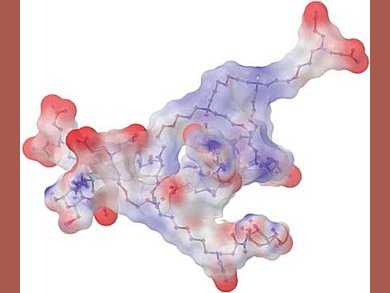Pathogenic enteric bacteria such as Shigella cause life threatening inflammatory diarrheas by inducing an over-reaction of the immune system. Small inflammatory proteins, hyper-produced following the infection, destroy the integrity of the epithelial gut wall, ultimately leading to its rupture and to bacterial invasion. The ineffectiveness of antibiotics imposes alternative therapeutic strategies.
A promising one has been developed by Ian Teo, Imperial Colleage London, UK, and colleagues, using dendrimer nanotechnologies. The team identified a small glycosilated polypropyletherimine dendrimer which is able to block the immune system’s hyper-activation by interfering with its capacity to detect the bacteria.
When administered to rabbits infected with Shigella, the dendrimer prevented the massive release of inflammatory molecules thus protecting the gut wall and minimizing the bacterial invasion.
- Preventing acute wall damage in infectious diarrhoeas with glycosylated dendrimers,
I. Teo, S. M. Toms, B. Marteyn, T. S. Barata, P. Simpson, K. A. Johnston, P. Schnupf, A. Puhar, T. Bell, C. Tang, M. Zloh, S. Matthews, P. M. Rendle, P. J. Sansonetti, S. Shaunak,
EMBO Mol. Med. 2012, 4 (9), 866–881.
DOI: 10.1002/emmm.201201290 - Podcast
Listen to Professor Sunil Shaunak
Professor Sunil Shaunak explains how controlling excessive immune responses could reduce deaths from bacterial infections.
EMBO Molecular Medicine, one of the highest cited journals in the biomedical sciences, is now a fully Open Access journal.




